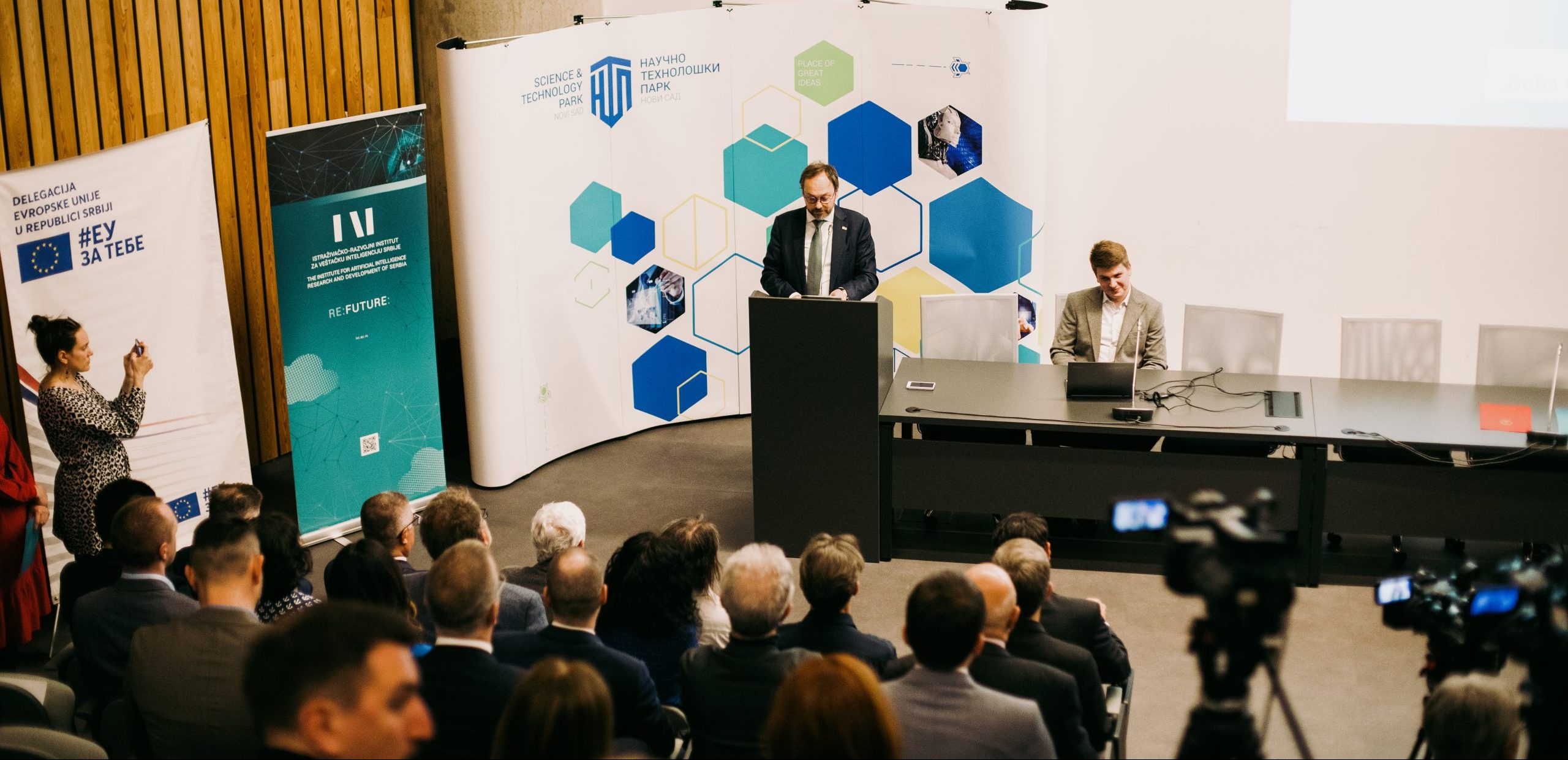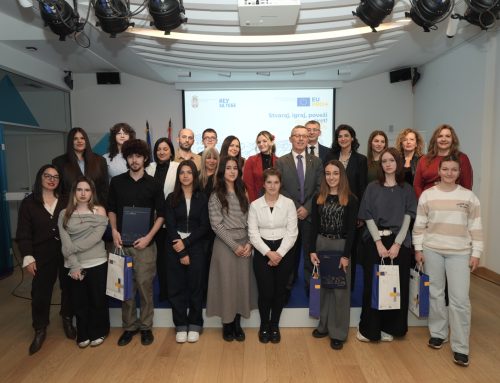“Artificial intelligence has the potential to transform every sector of society, from healthcare to transportation, from education to finance. It opens up opportunities for innovation and growth and has the power to improve people’s lives in ways we cannot yet imagine”, said the Ambassador of the European Union to Serbia, Emanuele Giaufret, at the “Age of Artificial Intelligence” ceremony and mini-conference, which was organised to mark the two years of work of the Institute for Artificial Intelligence of Serbia in Novi Sad.
The EU and Serbia have a strong partnership in research and innovation, and this can be seen in the grants awarded to the Institute for Artificial Intelligence of Serbia. The Project “It takes two to tango”, funded by the Horizon Europe 2022 programme, aims to develop a synergistic approach to human-machine decision-making. This project demonstrates the importance of collaboration between humans and machines in the development of AI.
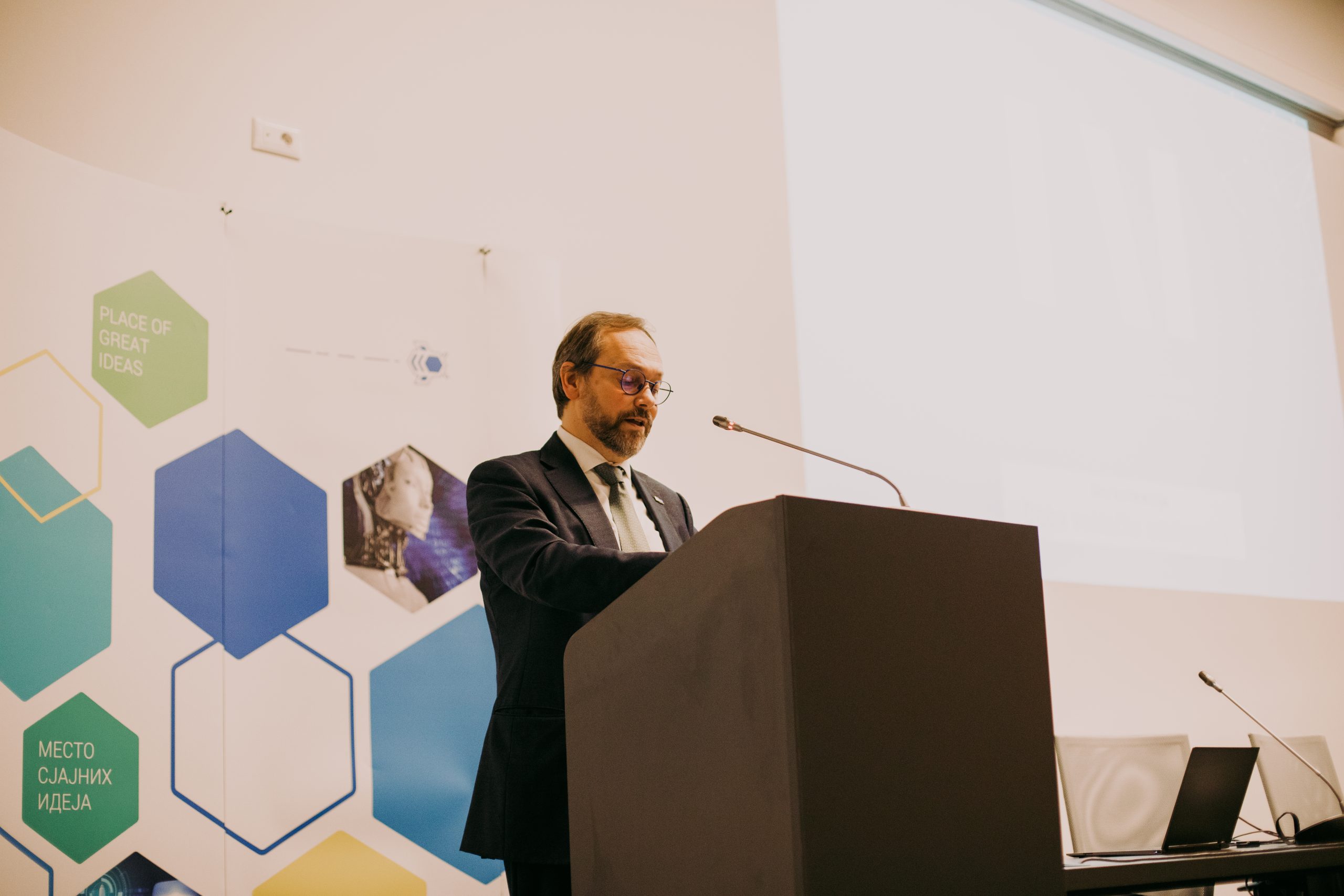
Ambassador Giaufret announced the possibility of a grant from the EU-funded SAIGE project, which aims to support the strengthening and acceleration of the Serbian innovation and entrepreneurship ecosystem. These two examples highlight the strong partnership between Serbia and the EU in promoting research and innovation, especially in the field of artificial intelligence.
The Prime Minister of the Republic of Serbia, Ana Brnabić, stated that the development of artificial intelligence with affect over 15 percent of the global growth of the gross domestic product by 2030, and that it is therefore important for Serbia to continue investing in this branch. The Prime Minister Brnabić also announced the adoption of guidelines for the ethical use of artificial intelligence.
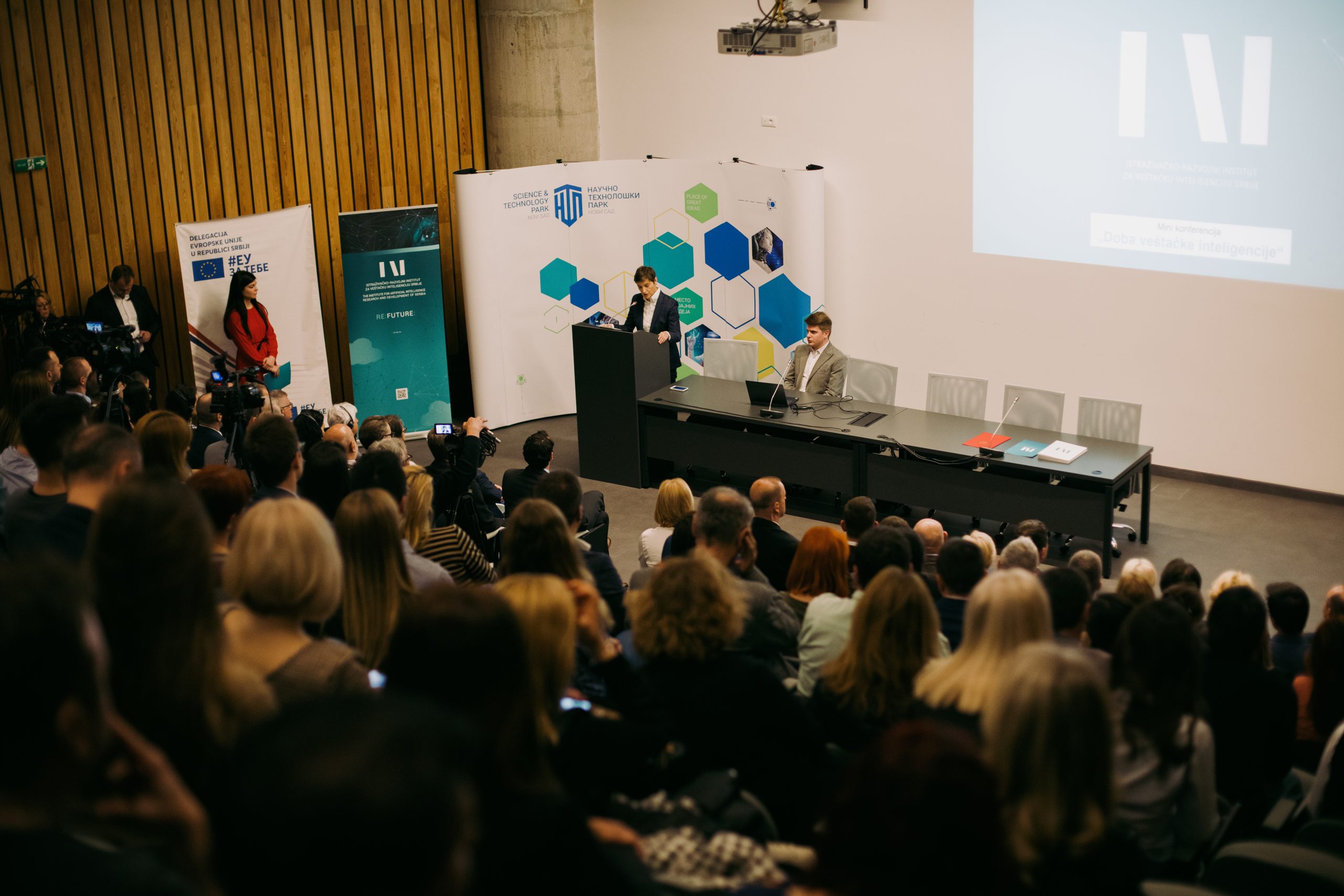
“We are ready to face the challenge and use artificial intelligence for faster growth of our economy, and greater productivity and competitiveness on the market. What is equally important is that our Government, public administrations and local self-governments, the public sector, from healthcare to energy, use artificial intelligence, so that we provide better services to our citizens”, Brnabić pointed out.
Serbia adopted the Strategy for the Development of Artificial Intelligence in 2019, becoming only the 26th country in the world with such a strategy, and in 2021, it would also establish the Institute for the Development of Artificial Intelligence and put a “super computer” into operation, and since last year, it has been a member of the Global Partnership for Artificial Intelligence.
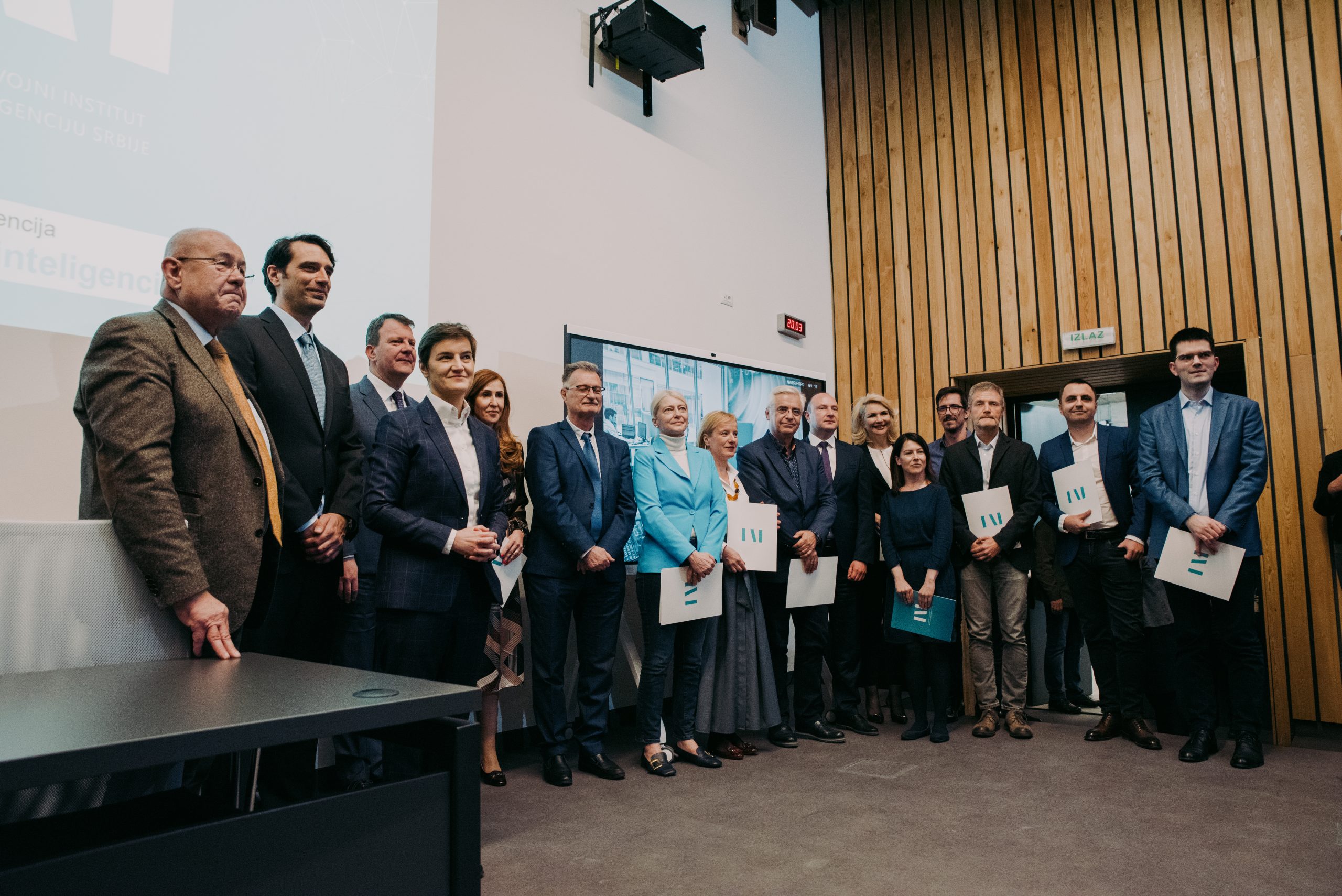
“The path that brought us here, where we have more than 40 researchers, with what is important to say, international experience and 18 international applications for projects in the last six months, was difficult, and we could not have completed it without the support of everyone present”, assessed the Director of the Institute for Artificial Intelligence, Professor Dr. Dubravko Ćulibrk.
The ceremony was also attended by the President of the Provincial Government Igor Mirović, the Mayor of Novi Sad Milan Đurić, the President of the Assembly of AP Vojvodina Ištvan Pastor, the Minister for Family Care and Demography of Serbia Darija Kisić and others. At the end of the conference, certificates of appreciation were distributed to those who were responsible for the work and development of the Institute for Artificial Intelligence.
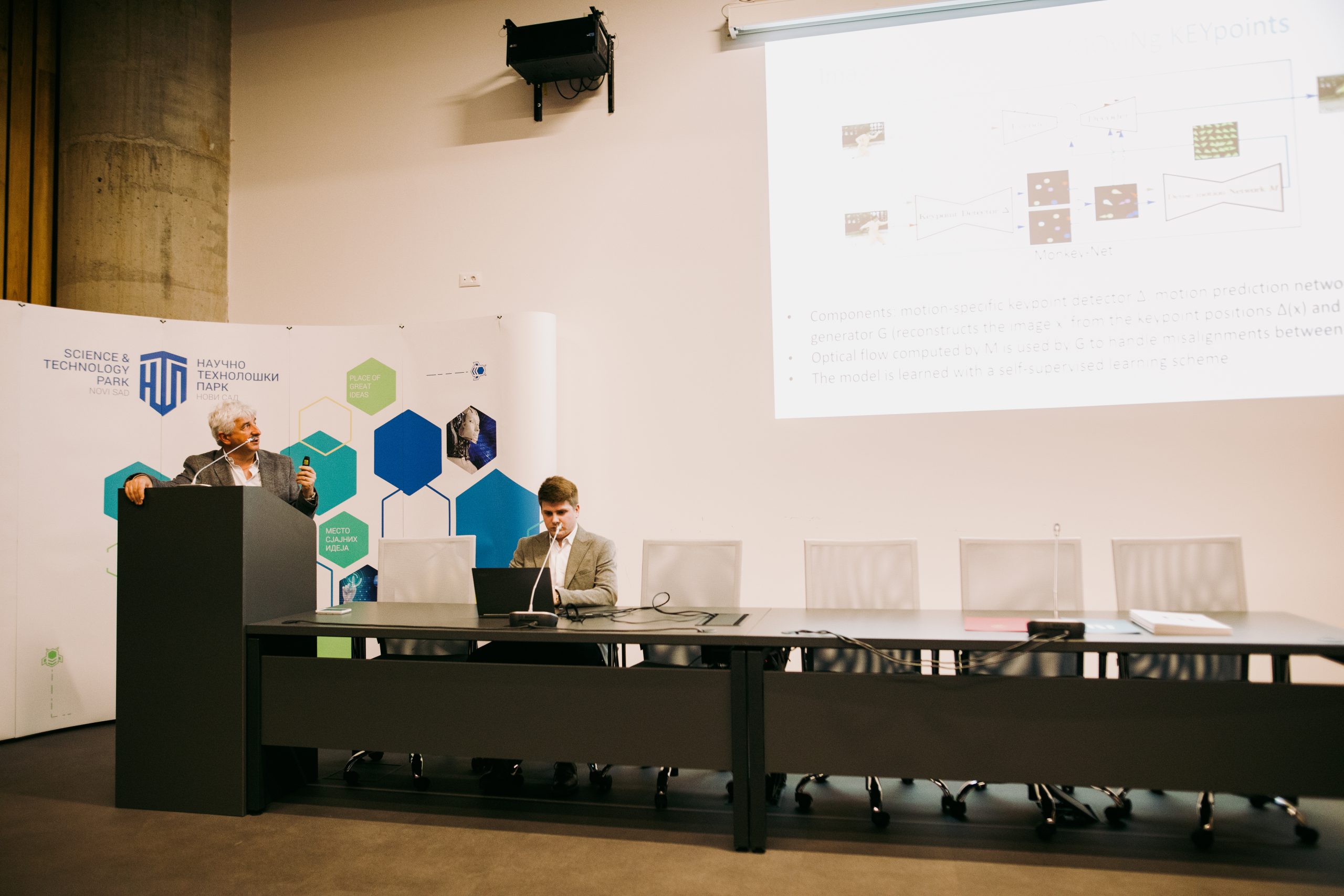
The European Union’s support for innovation and competitiveness in Serbia is worth more than 200 million euros for the period from 2014 to this day. The funds intended for this sector are used to encourage the quality of science, innovation and connections with European and international scientists and entrepreneurs, thereby increasing the competitiveness of the Serbian economy. Since 2014, Serbia has been a beneficiary of the Framework Programme for Research and Innovation – Horizon Europe.
The EU encourages the development of science and innovation in order to create the technological preconditions for the development of competitiveness and economy throughout Europe. For the citizens of Serbia, the EU enable the use of common research space and training in the EU countries, which made Serbian scientists more visible to the European and global scientific community.

